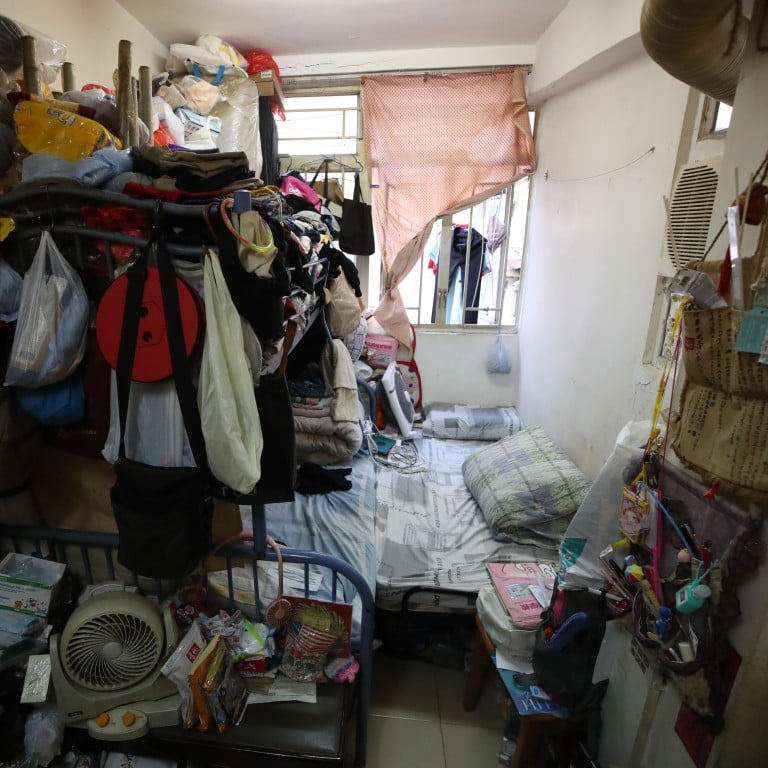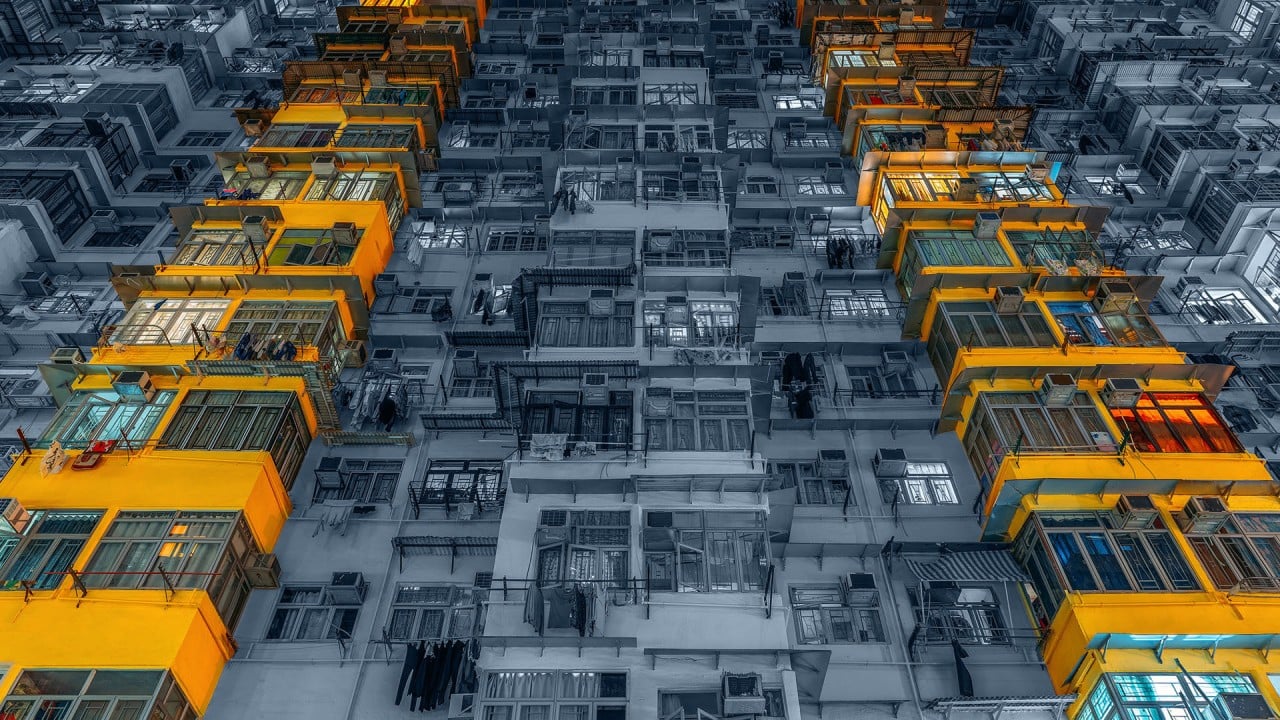
Hong Kong concern group accuses officials of failing to enforce new tenancy control law for subdivided flats
- The law, which went into effect in January, contains provisions aimed at preventing vulnerable tenants being taken advantage of by landlords
- But one advocate says: ‘Not much has changed for tenants now compared to before the law was implemented’
A concern group has accused frontline Hong Kong officials of misunderstanding a new tenancy control law covering subdivided flats, and of failing to intervene in cases of rule breaches affecting some of the city’s most vulnerable residents.
The Alliance Monitoring the Government’s Implementation of Tenancy Control on Subdivided Units said the new law was not properly protecting residents due to a lack of enforcement by the Rating and Valuation Department.
The law, which came into effect on January 22, covers about 92,200 of the tiny homes across the city, many of which are located in rundown buildings. Many low-income households have no choice but to live in subdivided units during their long wait for public housing.
Rent control bill will protect some of Hong Kong’s poorest tenants
Under the legislation, occupants and landlords of subdivided flats are required to sign a standard tenancy agreement setting out the rent amount, a deposit, utility charges and fees for any breach of the contract, and nothing else.
But the alliance’s Kenny Ng Kwan-lim said: “Not much has changed for tenants now compared to before the law was implemented. Some landlords are still overcharging their tenants for water and electricity.
“It is a vicious cycle because tenants face the dilemma of signing a lease that does not comply with the regulations, but at the same time they also fear offending their landlord and losing their home.”
A subdivided flat tenant surnamed Lau voiced frustration at the lack of help from authorities after she reported being overcharged for utilities.
Her family of four lives in a 100 sq ft flat in Tsuen Wan for which she pays HK$5,800 (US$741) per month in rent. They have waited seven years for public housing.
“The staff told us [overcharging for utilities] is not allowed under the regulations, so I asked them to call my landlord and explain the rules to them, but the staff said they wouldn’t contact them,” Lau said.
“I feel like you won’t get any help even if you ask for it. The Rating and Valuation Department is unwilling to take an extra step. How many landlords actually know about the law and follow it?”
The new law stipulates that the electricity and water charges for the tenants of all flats comprising a subdivided unit must not exceed the total amount stated in the bills for the unit as a whole. Those who breach the rule are subject to a fine of at least HK$10,000.
Are subdivided flats’ landlords exploiting Hong Kong tenants ahead of new law?
Another tenant, who only gave her name as Ying, said staff were unfamiliar with the law and could not answer her questions when she was negotiating a new contract.
Ying has lived in her 100 sq ft Kowloon City subdivided flat for six years, and pays HK$5,000 in rent per month.
“The staff members I spoke to were unclear about the law and had to ask their colleagues for information. I kept getting different answers on whether my landlord could increase my rent if I signed a new contract before the law came into effect,” she said.
The law limits rent rises to no more than 10 per cent per lease period, which is set at two years, though it does not regulate the initial rent that tenants are charged. In the third year, tenants will have priority to renew the lease for two more years.
The department has set up a team with 50 officials to enforce the law.
Hongkongers in subdivided flat forced to sleep on roof after catching Covid-19
The alliance urged the department to strengthen its training of frontline staff to ensure they better understand the requirements of the tenancy control law, and to provide direct support to tenants rather than just legal information.
Asked about the alliance’s concerns, the Rating and Valuation Department said it had not dealt with any cases of suspected breaches of the new law or requests for mediatory service, adding that it had received about 1,500 inquiries on tenancy control of subdivided flats.
Authorities also said they would continue to closely monitor the implementation of the law and take follow-up action as appropriate.
Hong Kong is the world’s least affordable residential property market, and Beijing has called the city’s housing shortage a deep-seated problem that must be addressed.
The average waiting time for public housing has climbed to six years, the longest in more than two decades, and double the three-year maximum pledged by the government – a target officials have not met since 2014.


